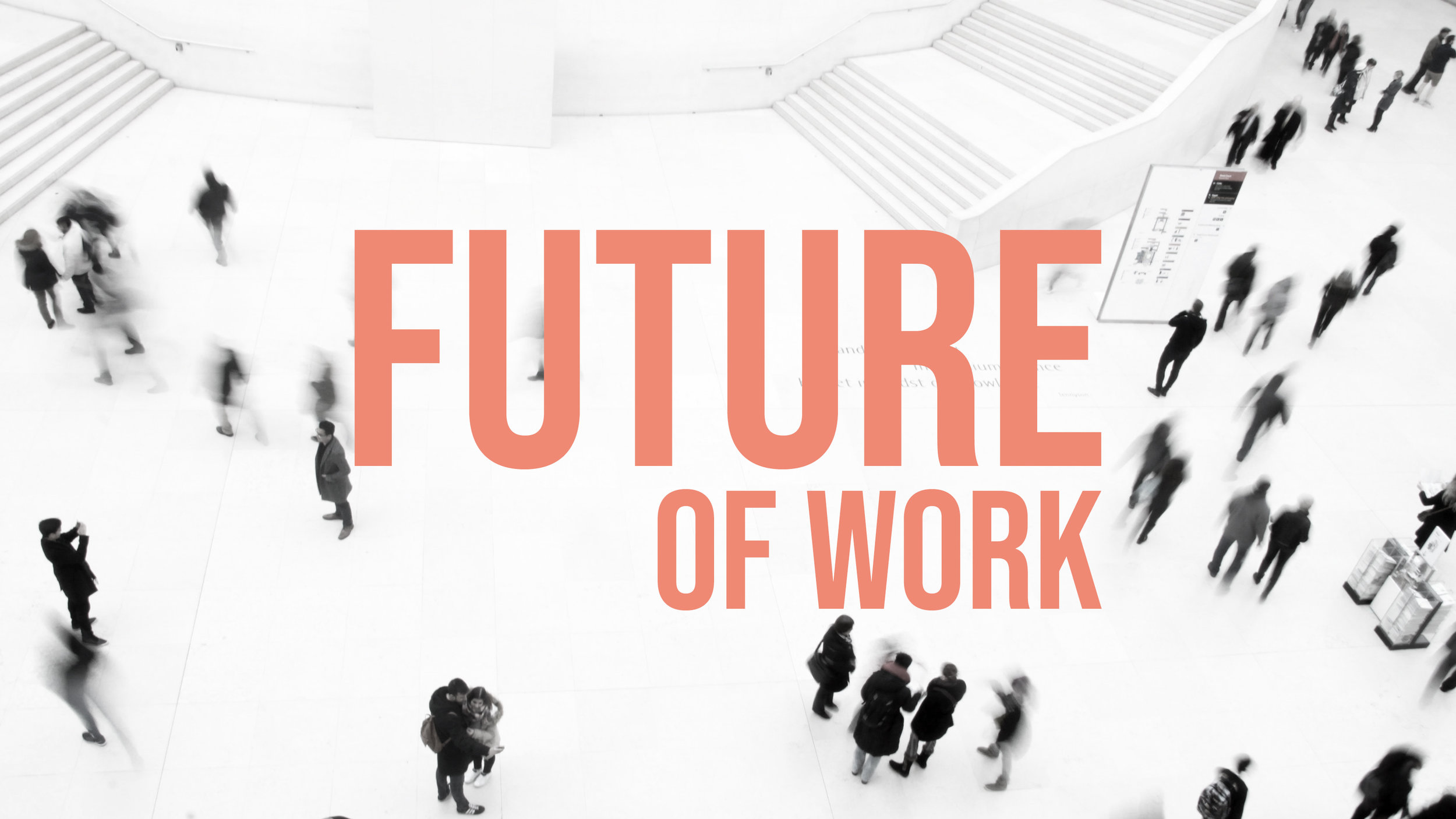Future of Work - Insights from Silicon Valley
By Thomas Winther Poulsen, Deputy Consul General and COO, Innovation Centre Denmark Silicon Valley
Work is being shaped and redefined by a broad range of technological drivers that continue to push the needle for what work can and will be. Technologies are powerful drivers that influence every level of the modern society.
Increasingly cheaper and faster computing devices supported by advanced high-speed networks and cloud based solutions promise to link every person, institution and object together regardless of time or place. This growing interconnectedness has brought the world closer together and has created easy access to international talent, markets and knowledge. A more global access is creating new possibilities for both businesses, individuals and organizations, while also representing new challenges to be addressed and new questions to be answered.
Since the dawn of modern work life, life has generally been separated into three stages; first education, then work and finally retirement. However, this approach to life is at odds with a steadily increasing life expectancy and a more rapidly changing job market. An education gained in our 20’s will no longer sustain us for more than 60 years of working. The jobs of tomorrow will look vastly different from those we know and educate towards today.
The Future of Learning
Technology enables a wide range of online learning platforms and educations that exist outside the accredited educational system. Many of these new alternatives specialize in specific components of traditional “bundled” education. They challenge the formal institutions’ hold on education, by offering the individual units that make up traditional degrees. What used to be part of yearlong degrees can be accessed through online platforms at anytime and anywhere. The unbundled units can be used both as supplementary learning or re-bundled and taken as a direct substitute.
Many of these platforms are approaching learning in new ways in order to further incentivize learning rather than relying on just the value of curriculum itself. They are creating more social, online environments that employ gamification, active and participatory learning to motivate and guide learners. The models enable us to tailor our own learning experience while being paced by the sociability of the platforms.
These new players in the learning space offer us more choices, allowing us to shape our learning to our individual needs. The flexible nature of these platforms allow for learning to integrate better with a work life as a constant recurrence that helps accommodate job changes and career shifts due to technological, social and personal changes.
Rapid technological development requires both us and our leaders to adapt and continue to learn in order to stay relevant throughout our entire work life. Continuous learning or lifelong learning is a major path to improving relevance and employability for all parties. The emergence of flexible learning tools present an opportunity for leaders and businesses to utilize these new tools for upskilling, thereby ensuring more qualified employees. Learning will no longer just be a personal experience, but a joint responsibility.
The Future Workforce
Technological advancements continue to remove obstacles and shorten the distance between manufacturers, products / services and consumers. New conditions will force businesses to change and adapt to rapidly shifting markets in a new era of global competition. While technological drivers such as automation, digitalization, robotics and AI are proving beneficial, they also create challenges as they disrupt entire industries, automate jobs and affect the nature of work itself. They can automate a large amount of predictive, routine jobs, yet are in large part still “only” sophisticated algorithmic systems, that relies on human input and interaction in order to work.
These technological drivers allow us as humans to increase our productivity many times over by outsourcing tasks that require precision and speed to machines, leaving the more human tasks for people. Relegating the more mundane tasks to technology, complements rather than replaces human work and enables augmented work. As machines integrate more with everyday tasks, it allows for more freedom in the organization of work. We can now augment our work, be more flexible and exist only online, while taking on assignments across the globe.
These technological displacements will require that we upskill and learn to work with machines in order to stay relevant to the job market. Rather than learning how to solve a specific problem, we must learn how to approach problems in general. Individuals will be under pressure to acquire knowledge in new areas and build new skills to be able to continuously adapt and move forward in a rapidly changing world.
The Future of Leadership
Just as work life changes, so will we. This change will have major impact on the leaders that are tasked to guide us. Traditional leadership models will become less relevant or even obsolete due to this new future.
Globalization is opening new markets, bringing increased competition and improving access to international talent. Technological drivers only add to a more rapidly shifting workforce and an uncertain job market. Leaders will need to increase their awareness of new cultural challenges and adjust to a more agile, global workforce, powered by new technologies.
The technological drivers increase the mobility of global talent and manpower enabling a more dynamic and diverse workforce. We can move more freely between both jobs and industries in short-term engagements - often referred to as the “Gig-economy”. The emergence of these fluid work relations allows for more fragmented organizational structures, with temporary workers from a wide range of cultural backgrounds situated across many different geographical locations. Bringing in more diverse talents pose challenges as we bring new cultural understandings and different expectations for the workplace. Leaders at all levels will need to embrace cultural diversity and think globally if they wish to thrive and lead us in the future.
A fragmentation of organizational structures brings new conditions for leadership, and creates a more demanding environment for leaders. They will have to draw on new skills and familiarize themselves with a broader set of disciplines in order to encompass more areas of their organization. Leading an increasingly complex organization requires a general knowledge of more layers of an organization and an awareness of all its strengths and needs. Leaders must be equipped with the necessary tools and skills to lead and bridge a multitude of layers.
About the author
Thomas Winther Poulsen
Deputy Consul General and COO, Innovation Centre Denmark Silicon Valley
Board Member, Nordic Innovation House-Silicon Valley
thopou@um.dk
Do you want to participate in the discussion on Future of Work?
Innovation Center Denmark and Nordic Innovation House in Silicon Valley are facilitating the continued dialogue on the future of work, based on the technological drivers, ideas and interpretations of future work that can be extracted from Silicon Valley.
We invite Nordic companies, social partners and other stakeholders to a week's intensive Masterclass in Silicon Valley from 3-7. June 2019. In collaboration with the world's leading "Thought Leaders", Tech companies and research institutions, we look at how the latest technologies affect, create and change the work of the future. Together we will explore and discuss the opportunities and challenges that technological development entails and how to translate this into the Nordic context and thereby identify possible solutions to current challenges the Nordics.
Read more and sign up here.
“Traditional leadership models will become less relevant or even obsolete due to this new future.”
background
This article presents a brief overview of some of the key insights and drivers behind the future of work. It serves as a short introduction to an innovation project that Innovation Centre Denmark in Silicon Valley conducted throughout 2018. The entire publication is available online, for free.
The project has focused on identifying the different social and technological drivers for the future of work most prevalent in the Bay Area of California. Experts from academia and various industries were engaged in conversation and shared their perspectives on the future of work. Likewise, the project engaged with Danish experts, labor market stakeholders and problem owners to gain insight on Danish challenges and perspectives, and to identify case partners working to solve future challenges.
In the project we worked with HKLab, Finansforbundet, and International Management Education (IME), who all proposed interesting and relevant challenges pertaining to their organizations.
The research sought to offer possible solutions to the identified challenges in two ways; by mapping key developments in Silicon Valley and understanding how these developments and solutions might apply to a Nordic context.
The project has not tried to predict exactly how the future of work will look or the complete extend of its impact. However, the perspectives and the challenges should be read as ideas, signals and overall concepts of what the future of work could hold. It serves as a foundation for discussion and reflection for individuals, organizations and institutions – and should help them start asking the right future questions.


